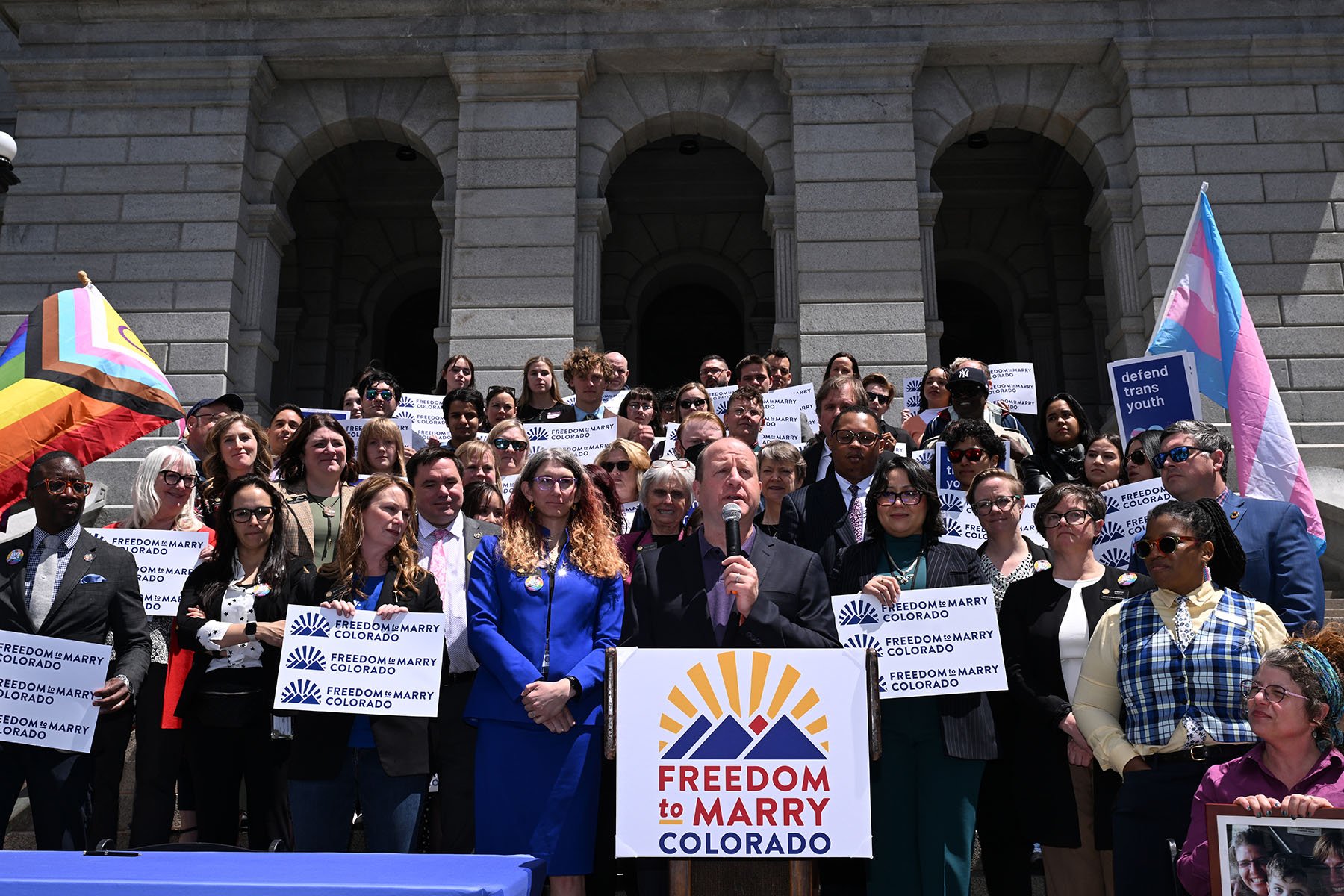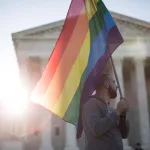Voters in three progressive states have voted to codify marriage equality. California, Colorado and Hawaii all had ballot measures to protect the right of people of all genders to marry under state law. The moves will provide comfort to some who see incoming President Donald Trump as hostile to LGBTQ+ rights.
The Supreme Court granted same-sex couples the right to marry nationwide in its historic Obergefell v. Hodges decision in 2015. But many LGBTQ+ rights advocates have worried about the vulnerability of marriage equality: Some Supreme Court justices have expressed an interest in overturning the landmark ruling in legal opinions, and the court overturned its own precedent on abortion with the 2022 case Dobbs v. Jackson Women’s Health Organization.
Most states (35 total) still have a constitutional ban or a statute outlawing same-sex marriage. While the 2015 Obergefell decision currently supersedes those bans, they would come back into play if the Supreme Court ever revisited its 2015 decision (three, including Hawaii, are technically unenforceable).
Two years ago, Congress passed the Respect for Marriage Act, which forces states without marriage equality laws to recognize the marriages of same-sex couples married in other states. That means that at least in some parts of the United States, marriage equality cannot be made illegal.
This year, the GOP removed language in the Republican platform specifying that the institution was reserved for “a man and a woman,” a move meant to signal that if elected, Trump and his allies would not seek to undermine marriage equality. But advocates remain nervous given the GOP’s appetite for other anti-LGBTQ+ policies, such as bills blocking gender-affirming care for transgender youth.
As such, some states have been moving to enshrine protections at home.
“Marriage has been many things throughout history, but for queer people, it’s always been about more than just a legal union — it’s been a defiant act of love and resistance,” Jax Gonzalez, political director at One Colorado, said in a statement.
California
California passed Proposition 8, banning same-sex marriage, in 2008. This year, voters passed Proposition 3, which overturns that 2008 law.
The law has been blocked since 2013 due to a separate Supreme Court ruling that determined Prop 8 was unconstitutional. But any law that would overturn the 2015 ruling would ostensibly overturn the 2013 ruling too.
As of 2023, 71 percent of Americans support marriage equality, according to Gallup. So equality-loving Californians are eager to solidify this right once and for all.
“Here in California, we believe the ability to marry the person you love, regardless of race, ethnicity, gender, or sexual orientation, is a fundamental right,” said state Sen. Toni Atkins, a longtime LGBTQ+ advocate, in a statement. “During a time when our civil rights are under attack by courts and state houses across the nation, we cannot afford to wait to enshrine marriage equality in California’s Constitution — the time to act is now.”
Colorado
Colorado has been a critical state for LGBTQ+ families fleeing anti-transgender legislation in search of a safe and supportive environment. That may make its push to remove its constitutional ban on marriage equality that much more pressing.
Voters approved Amendment J, which struck down constitutional language limiting marriage to “only a union of one man and one woman.”
Jax Gonzalez, political director at statewide LGBTQ+ organization One Colorado, said that codifying marriage equality is not just about love, but legal rights and dignity.
“Marriage also gives us legal decision making power, and access to information about our medical care,” Gonzalez said in a statement shared with The 19th. “As a transgender person with a transgender partner, it is incredibly important to me that I am able to access the freedom to marry to ensure we can both receive adequate medical care.”
Hawaii
Hawaii voters also voted down their constitutional same-sex marriage ban. In 1998, voters backed Section 23 of the constitution, which states that “the legislature shall have the power to reserve marriage to opposite-sex couples.”
Same-sex marriage has been legal in Hawaii since 2013.
Rep. Adrian Tam told Civil Beat last year that he is constantly reading the state’s constitution as a gay man.
“But for me it is saddening to see how discriminatory Section 23 is. It’s a constant reminder that the constitution does not fully represent me right now over that one sentence.”
To check your voter registration status or to get more information about registering to vote, text 19thnews to 26797.






